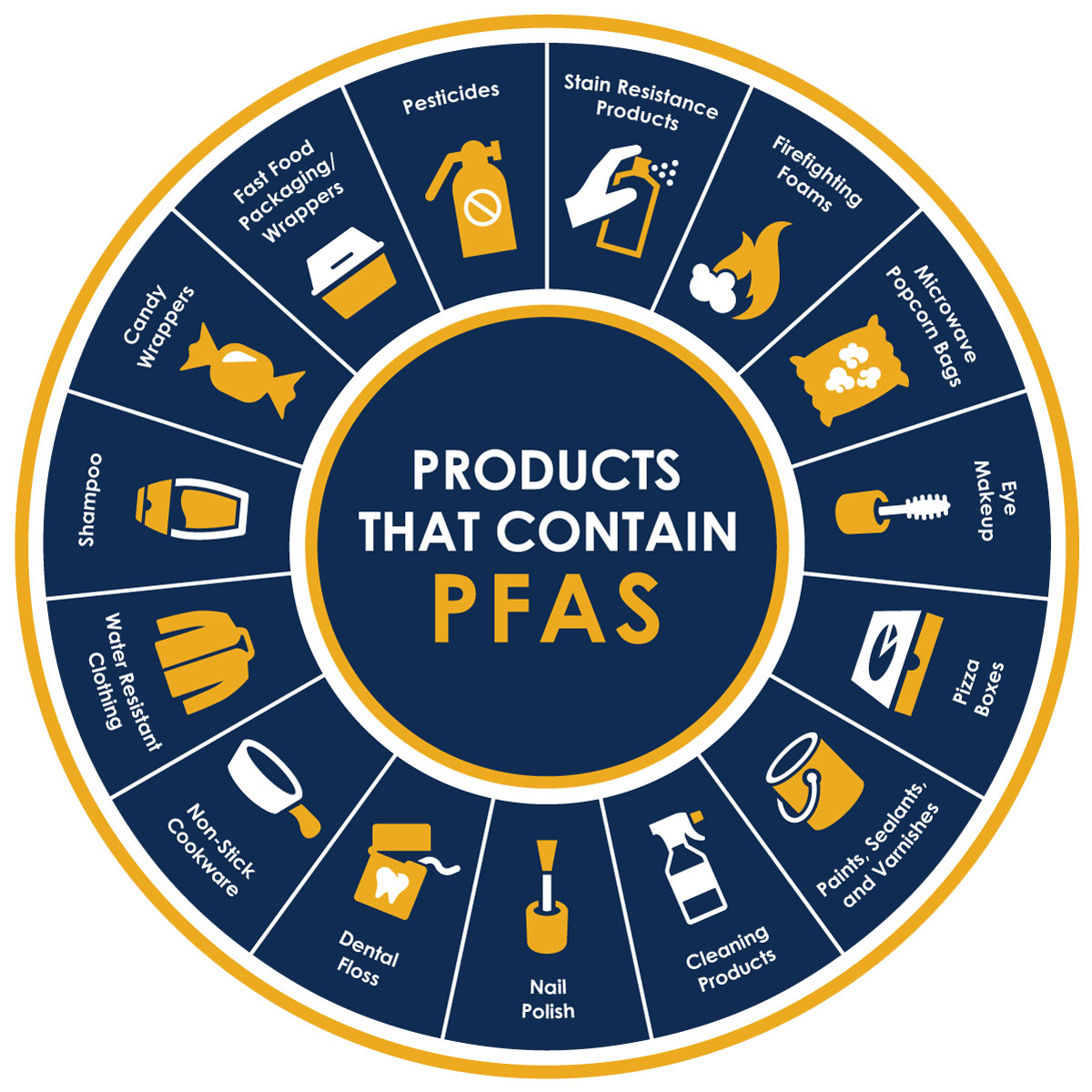Letter to the Editor: Why Congress must pass the Relief for Farmers Hit with PFAS Act

Illinois is one of the nation’s agricultural powerhouses, home to nearly 71,200 farms spanning more than 26 million acres. With crop diversification and sustainable livestock and dairy production, this sector contributes more than $51.1 billion yearly to the state economy, benefiting rural and urban communities.
Tragically, farmers in Illinois currently face an insidious threat: per- and polyfluoroalkyl substances (PFAS). Often dubbed “forever chemicals,” these synthetic compounds have quietly spread across farmland through industrial runoff, tainted irrigation systems, and biosolids. Yet amid this persistent crisis, the Relief for Farmers Hit with PFAS Act emerges as a crucial step that extends much-needed financial assistance to seriously affected farming communities. Besides this, the bipartisan legislation also underscores the urgent need for broader and more robust federal action to protect agriculture in Illinois and nationwide.
Discovered in the late 1930s, PFAS is a massive class of thousands of human-made compounds varying widely in their physical and chemical compositions. Since then, they have been mainly celebrated for their excellent ability to repel oil, water, stains and heat. As such, they have become beneficial in various applications such as aerospace, medical, construction, electronics, and firefighting.
Yet behind their seemingly advantageous qualities is a grim reality. PFAS are infamous for their environmental persistence, meaning they do not break down easily and can instead build up in the soil and water. Unfortunately, this accumulation has polluted the agricultural systems, affecting the food chain and consumers’ health.
Research shows that PFAS can enter agricultural soils mainly through the extensive utilization of biowaste, wastewater, and pesticides. Another primary source of contamination also includes the widespread application of biosolids, byproducts of treated sewage sludge that are frequently sprinkled on farmland as fertilizers. For decades, farming communities have seen this field cultivation method as a win-win practice, as it provided nutrients and organic amendments to enhance soil fertility and served as an alternative to chemical products. These benefits have also stirred the Environmental Protection Agency (EPA) to promote biosolids for over 20 years.
However, in the early 2000s, chemical manufacturer 3M detected alarming PFAS levels in the nation’s sewage supply, which is often used to produce these fertilizers. Seeing that numerous farmers have relied on this means to enrich their farmland, the company inferred that such toxic “forever chemicals” were unwittingly spread on broad fields across the country.
This pervasive contamination sounds an alarm, especially since mounting evidence reveals that PFAS can impact crop production and livestock health. It also raises concerns over food safety and public health consequences, considering that consumption of contaminated farm products can cause ailments, such as liver and kidney damage, hypertension, immunotoxicity, obesity, and many different types of cancer. For farmers, the threat is twofold: they are exposed to dangerous substances and risk losing their livelihoods as they face long-term liability for unsafe fields.
The growing PFAS crisis has drastically impacted agricultural systems nationwide, including in Illinois. An updated interactive map indicates hundreds of water systems in the state have detected elevated PFAS concentrations, underscoring the widespread contamination extending to almost all regions. This unceasing situation is particularly troubling, as these tainted water supplies also serve as irrigation systems, which can consequently become a pathway for hazardous chemicals to infiltrate soil, crops, and, ultimately, the food chain. Besides this, biosolids also contribute significantly to PFAS pollution in Illinois. Accordingly, around 70% of these materials are applied to agricultural soils statewide, compounding the issue of chemical accumulation in farmland.
Despite these dangers, the Prairie State still has no binding limits on PFAS in food products and restrictions on toxic biosolids. While some states, like Maine, have banned this sludge from farmland, Illinois continues to allow its use, leaving more than 121,300 farmers exposed to risks with little to no meaningful recourse to keep up with the problem.
Introduced in March 2023, the Relief for Farmers Hit with PFAS Act can be a vital solution to the escalating threat of “forever chemicals” in agriculture. The bill specifically allocates $500 million in federal grants from fiscal years 2024 through 2028 to compensate farm owners and operators for the losses connected with PFAS contamination. It will also support impacted farming communities by funding water and soil testing, contaminant filtration, transitions to clean feed, and even relocation to safer farmland when necessary.
While some critics may argue that $500 million is insufficient to address the scale of the crisis, this budget marks a critical starting point, especially since the existing national response is inadequate. The legislation signals long-overdue federal recognition of a problem disproportionately burdening farmers.
Though not a complete solution, the act fills a glaring policy gap and may pave the way for broader and more sustained action.
Stan Gottfredson
President and CEO of Atraxia Law
San Diego, California
Miss Clipping Out Stories to Save for Later?
Click the Purchase Story button below to order a print of this story. We will print it for you on matte photo paper to keep forever.

